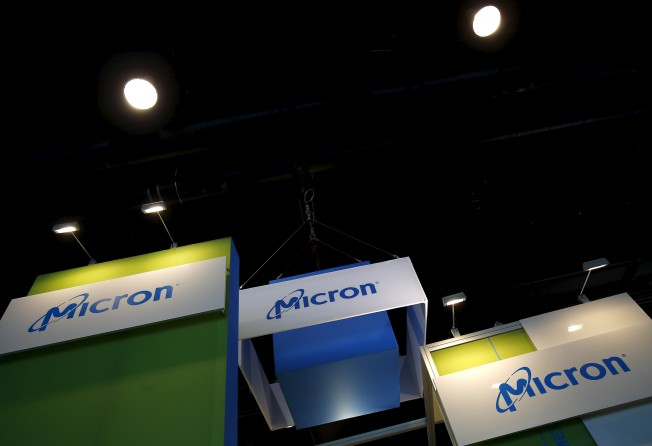Tsinghua Unigroup US$23 billion bid for Micron will face close scrutiny from US regulators

A bid by China's largest computer chip design company, Tsinghua Unigroup, to take over major American semiconductor firm Micron Technology will come under close scrutiny by the United States government amid national security concerns about Chinese companies.
Reports on Tuesday said the state-backed Tsinghua Unigroup had proposed to acquire chipmaker Micron, the world's fourth-largest semiconductor company by revenue, for US$21 a share, which valued the buyout at US$23 billion.
Micron has so far denied that it received an offer from Unigroup, a subsidiary of the technology-focused Tsinghua Holdings headquartered in Beijing.
Experts said the proposed deal will need approval from the Committee of Foreign Investments in the United States (CFIUS). Based in Washington, CFIUS is a secretive inter-agency body tasked to determine the potential impact of mergers and acquisitions activities involving US companies on national security.
Watch: China's Tsinghua Unigroup said to plan US$23 billion bid for US chipmaker Micron Technology
"In my experience, this is the kind of deal that CFIUS would likely want to look at," Anne Salladin, a special counsel at the US law firm of Stroock & Stroock & Lavan, told the South China Morning Post on Wednesday.
"It appears to have all the hallmarks – China, foreign government control and US high-tech – which can often result in heightened scrutiny by CFIUS."
Salladin, who is part of Stroock's national security, CFIUS and compliance practice group in Washington, suggested that the committee could undertake a full 75-day investigation period if the proposed Micron takeover moves forward.
Every transaction covered by CFIUS is subject to a 30-day review. If there are security concerns after that period, a case moves to a 45-day probe. If necessary, the CFIUS can ask the US president to make a determination after 15 days.
In a report, Bernstein Research senior analyst Mark Newman said Tsinghua Unigroup's proposed takeover bid "would have a high risk of not going through due to the national security concerns of selling advanced semiconductor manufacturing technology to China".
Micron is the world's second-largest maker of dynamic random-access memory (DRAM) chips, behind South Korean firm SK Hynix.
Shipments of DRAMs for use in smartphones, compared with personal computers, have grown rapidly over the years because of the increased demand for high-memory density in these devices. Mainland China is not only the world's biggest market for smartphones, it is also the preferred production base of the world's biggest electronics contract manufacturers.
Micron is also the third-biggest producer of so-called NAND flash memory chips, behind the Toshiba-SanDisk alliance and Samsung Electronics. NAND flash memory is the fastest-growing storage technology used in the lightest laptop computers, enterprise storage systems in data centres, and the most advanced smartphones and media tablets.
Data from technology research firm Gartner and Bernstein showed that memory chips accounted for 23 per cent of the total US$340 billion semiconductor market last year.
"We are not surprised to see China make a move to buy a memory player given the country's semiconductor ambitions," Newman said.
Mainland China has reportedly set aside 1 trillion yuan (US$160 billion) under various funds for use over the next 10 years to accelerate the development of the domestic semiconductor industry, according to Bernstein.
"The proposed merger [between Tsinghua Unigroup and Micron] would eat into 15 per cent of that budget," Newman said.
He pointed out that the proposed bid appeared like an opening salvo since buying Micron "could eventually account for a much larger part of the [reported Chinese semiconductor development] budget".
"We believe Micron's value stands at US$27.43 per share, and thus the offer of US$21 [per share] is too low," he said.
Tsinghua Unigroup has already made two big acquisitions of so-called fabless semiconductor firms.
In 2013, the company bought Shanghai-based Spreadtrum Communications for US$1.7 billion. Spreadtrum designs chips for mobile phones and has these products fabricated by contract semiconductor manufacturers, also known as foundries.
RDA Microelectronics, another Shanghai fabless company, was purchased by Tsinghua Unigroup for US$907 million in the same year. RDA designs wireless systems-on-a-chip and radio frequency semiconductors used for cellular, connectivity and broadcast applications.
A total investment of US$1.5 billion was received by Tsinghua Unigroup for those two deals from US semiconductor giant Intel, which had a combined 20 per cent stake in both Spreadtrum and RDA.